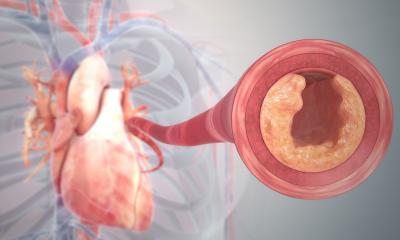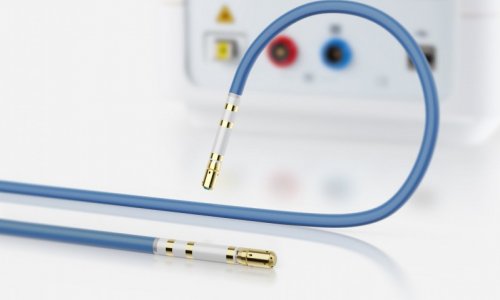News • Simplified catheter ablation
“Back to basics” atrial fibrillation procedure could cut waiting lists
A day case catheter ablation procedure which includes only the bare essentials and delivers the same outcomes could slash waiting lists for atrial fibrillation patients, according to late-breaking results from the AVATAR-AF trial presented today at EHRA 2019, a European Society of Cardiology (ESC) congress. With the simplified protocol, 30% more patients could receive catheter ablation for the same cost.
Atrial fibrillation is the most common heart rhythm disorder (arrhythmia). It causes 20–30% of all strokes and increases the risk of dying prematurely. Symptoms include palpitations, shortness of breath, tiredness, and difficulty exercising. Catheter ablation, aimed at burning or freezing heart tissue causing atrial fibrillation, is recommended to restore normal rhythm after failure of, or intolerance to, drug treatment.
Principal investigator Professor Prapa Kanagaratnam, of Imperial College London, UK, said: “Catheter ablation started in 1998. There has been little improvement in clinical outcomes in the last ten years despite costlier technologies and a more complicated procedure requiring highly skilled staff. In this trial, we stripped the procedure back to the bare essentials to see if it achieved the same outcomes.”
The AVATAR protocol eliminates electrical mapping of the pulmonary veins, thereby removing the need for pulmonary vein catheters, electrical recording equipment, and staff trained to use the equipment. The trial enrolled 321 patients with atrial fibrillation needing symptom control. Patients were randomly allocated to one of three treatments: 1) AVATAR protocol with cryoballoon ablation and discharge home the same day; 2) antiarrhythmic drugs; 3) conventional cryoballoon ablation with pulmonary vein mapping, and overnight hospitalisation.
For all patients, there was a 12 week treatment period during which procedures were done and drugs were optimised. The primary endpoint was whether patients needed to attend hospital again after that period.
At one year, 21% of patients in the AVATAR group needed hospital treatment to relieve symptoms. This was significantly lower than in the drug therapy group, of whom 76% needed therapy (p<0.0001), and not significantly different to the conventional ablation group, of whom 18% required treatment (p=0.6). “Some of the more technical parts of the procedure can be omitted, making it easier, cheaper and quicker, without sacrificing results.” said Professor Kanagaratnam. “In the UK, patients with atrial fibrillation have to wait months for catheter ablation. The simpler protocol could shorten waiting lists within the same budget.”
“Eight in ten patients didn’t need to see their specialist again,” he continued. “Currently we medicalise patients with regular monitoring, but the study shows that long-term follow-up is unnecessary. Patients can contact the hospital if they have symptoms.”
The study gives the first direct proof that ablation is better than drugs for controlling symptoms and avoiding hospital treatment. “It is possible that more patients will now choose catheter ablation outright, rather than trying drugs first.” said Professor Kanagaratnam. “The findings also question the value of drug therapy, and whether catheter ablation should be the first line treatment for atrial fibrillation patients with symptoms.”
Source: ESC
19.03.2019





